To do Wenger's legacy justice, he needs to hand it over
It’s important to preface any Arsene Wenger article with sufficient and deserving acknowledgement of the Frenchmen’s revolutionary impact on Arsenal as a football club. For there to be such a perpetual outcry of underachievement emitting from the Emirates, it is indeed one of the greatest markers for the work Wenger has done since he arrived in North London back in August 1996.
This however, isn’t a celebration of the record-setting strides Wenger has achieved in his near on 18 years with the Gunners.
This is an appreciation for the club that Wenger has built today, that now needs to be carefully passed into new, dynamic hands.
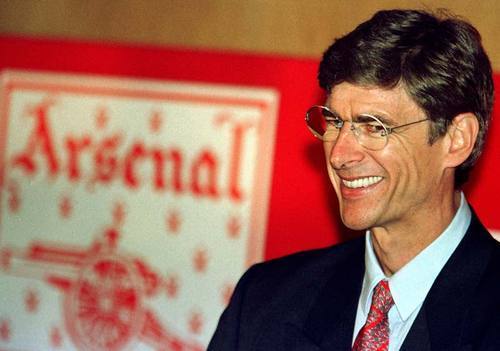
Despite having been league champions in 1989 and 1991 before the Premier League’s inception, by the time Wenger made his way over from Japan Arsenal had disintegrated into an upper mid-table side come cup specialists, renowned for grinding out unattractive 1-0 victories.
By 2006, Arsenal were three-time Premier League champions, four-time FA Cup winners, double winners TWICE, completed a season unbeaten away from home, became the ‘Invincibles’ and narrowly lost a Champions League final to a Barcelona side well on their way to being considered one of the greatest outfits of all-time.
In the eight years that followed a glory-laden era in the red half of north London, Arsenal racked up five fourth place finishes, three third place finishes, runners-up twice in the League Cup, one Champions League semi-final exit at the hands of Manchester United no less, but more importantly to Wenger, a new stadium.
Wenger’s vision for Arsenal to become one of Europe’s true super powers far exceeded the brand of football his side should play, it reached all corners of the club. With the unconditional support of his biggest advocate, David Dein, the former Monaco boss set about investing in the clubs future which started with the £10m construction of their training ground in 1999.
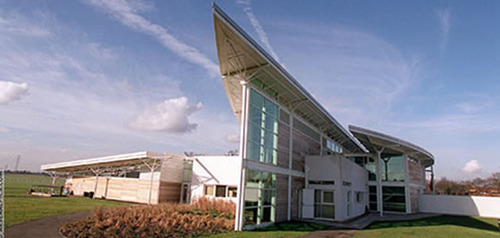
Wenger’s main goal however was to build another stadium, once he realised nearby housing prevented the expansion of their 38,419-seater home Highbury. The financial benefits and ever expanding fan base thanks to their continued Wenger inspired success made the move a no-brainer from the get-go.
In July 2006, two short months after their Champions League heartache in Paris, Arsenal opened the brand new 60,272-seater Emirates Stadium catapulting their capacity from ninth biggest in the top-flight, to second.
Now, its antecedent that finance should come before anything else in a venture like that, especially having seen how the purse strings came to bring successful clubs like Portsmouth, and a team as historically powerful as Leeds, to their very knees in the last decade.
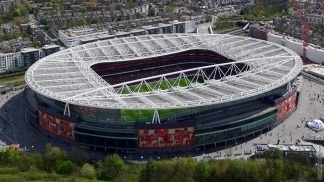
To cut a long story short, the cheque book did indeed bring Arsenal to their knees, but in the polar opposite way to the aforementioned pair.
Cesc Fabregas, Emmanuel Adebayor, Gael Clichy, Robin Van Persie, Alexander Hleb, Thierry Henry, Ashley Cole, Kolo Toure, Samir Nasri and Alex Song all left in that eight year, trophy-less span for big fees to great success. Rivals Manchester United, Chelsea and Manchester City all capitalised and won league titles with these former Gunners in the interim, while the others left for Barcelona where they won multiple domestic and European titles.
Over the period in question, Arsenal received £219.2m in transfer fees whilst forking out £218.32m, meaning they actually made £880,000. Wenger’s men managed to qualify for the lucrative Champions League in all of those eight seasons too, showing what an initial strain the Emirates Stadium brought them.
On that note, Wenger has shown remarkable consistency by qualifying for Europe’s premiere competition 17 seasons in a row and indeed 15 years of interrupted progression through the group stages.
Somewhere along the line, what should be a bit of Arsenal trivia became the gauge of success.
Arsenal’s transfer strategy naturally had to adapt and the wise Wenger sought to buy young, promising talent from the continent. He wanted to groom and mould his starlets into not only leading Premier League performers, but a new Arsenal.
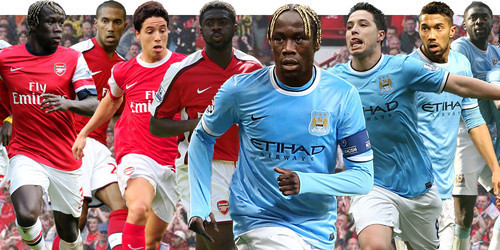
Wenger may well have been financially restricted in his efforts to make Arsenal a permanent resident at the elite level, but there was no excuse for aiding their rivals like he did. He allowed four of his top stars to move to a budding Manchester City and win medals almost immediately; Wenger did the hard work of establishing all of those individuals from relative obscurity before allowing City to reap the rewards.
Fabregas wanted to go to Barcelona, Robin Van Persie wanted to go to Manchester United. It’s all well and good being the nice guy and succumbing to player’s wishes, but not when they directly conflict with your own interests. Allowing Fabregas to return home to Catalonia wouldn’t directly hurt Arsenal, whereas RVP would lead United to the 12/13 League title finishing the Golden Boot winner with 26 goals. Why not cash in on him abroad?
For all of Arsenal’s merits in their European endeavours, they’ve still exited at the last-16 stage four years running. That is undoubtedly a backwards trend, usually stemming from their inability to win their group resulting in the toughest draw possible.
Last summer’s acquisition of Mesut Ozil for £42.5m signalled a new era for Arsenal, the end of the stadium induced transfer oppression and the beginning of the heavyweight gala signings. Arsenal’s top three most expensive signings of all time have occurred in the last 18 months, starting with Ozil at the top, swiftly followed by Alexis Sanchez for just over £30m, and Danny Welbeck for £17m on August’s deadline day this year.

Before that deal, the record transfer was Sylvain Wiltord’s £13m move in 2000. Amongst the figures does indeed lie a story – somewhere along the line, Wenger became more interested in protecting his ‘brand’ of football than winning titles.
Take last summer for instance. Chelsea’s forward line of Demba Ba, Fernando Torres and Samuel Eto’o only managed 19 league goals between them, whereas even Everton loanee Romelu Lukaku managed to record 15 league goals.
Boss Jose Mourinho wasted no time, or expense, in solving his goalscoring issues as prolific Atletico Madrid forward Diego Costa, Loic Remy and club legend Didier Drogba headed up a new front trio as the other four were shown the door.
Long-serving stalwarts Frank Lampard and Ashley Cole both sought pastures new to enjoy the winter of their careers and find new tread on their well-worn tyres. Mourinho’s answer to those established departures came in the shape of the best left-back in La Liga for at least the last two years, Filipe Luis, and a proven creative Premier League commodity in former Gunner, Fabregas. Who did Wenger get to replace Thomas Vermaelan?
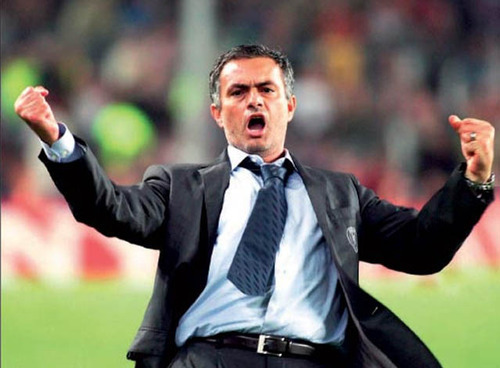
Everything Mourinho does is about winning. He makes no apologies for his ambitions and isn’t interested in building a dynasty or increasing a clubs profile – it’s about success and success only. The Portuguese tactician spots a void in his team and he fills it with what’s best conducive to his strategy and what’s proven in the marketplace.
Look at his attacking midfielders. Andre Schurrle, Eden Hazard, Willian and Oscar are all terrifically talented individuals in their own right, but to be part of Mourinho’s team they’ve had to display athleticism and hunger to underpin a necessary work ethic. Juan Mata and Kevin De Buyne, another two excellent players, were guided to the exit for not being able to comply with Mourinho’s demands.
Wenger however, seems almost contrite in his big money signings. Of course, he’s spending the kind of money the fans have pined for, but is it more of a token gesture rather than logically applied?
Mikel Arteta, the 32-year-old, uncapped Spaniard, continues to anchor the Arsenal midfield and act as the protective force for the Gunners back four. In his absence, 30-year-old three-time French international Mathieu Flamini is his deputy.
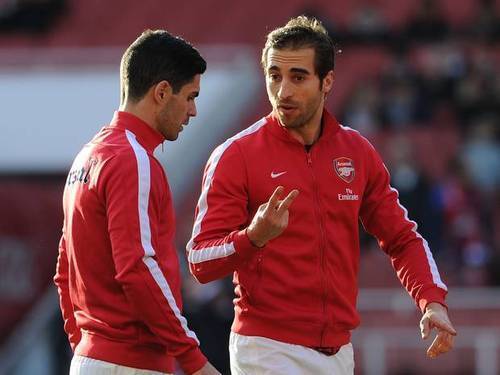
One look at Nemanja Matic or Fernandinho of rivals Chelsea and Manchester City respectively and the gap in quality is profound. Arteta is a comfortable receiver off the back four, but he’s not Arsenal’s primary need in that role. Similarly, Flamini’s raw aggression and desire doesn’t compensate for his unreliable distribution. And Abou Diaby is a non-starter.
Wenger has recently been quoted as saying he will look to renew Diaby’s contract at the end of the season. Whilst it’s probable such a deal would be on a pay-as-you-play basis, and the French international is certainly a talented player, on the rare occasions you get the pleasure to see it, when does Wenger draw the line?
Diaby currently earns £65,000-a-week. The former Auxerre man signed a five-and-half year deal on December 31st 2009 and has only managed 32 league appearances in five subsequent seasons. For you mathematicians out there, that’s £16.9m spent on Diaby over that period. For a man so stringent with the clubs finances Wenger seems incredulous to Diaby’s worth, or lack thereof.
It appears Wenger refuses to address the most obvious deficiencies in his side that any common fan could detect. Arsenal are statistically the shortest side in the Premier League, in an age where the physical and athletic aspects of the game are more vital than ever. The Gunners have been crying out for a commanding defensive midfielder and centre half, yet Wenger either hasn’t been able to sign the fitting individual (although there has been multiple chances) or worse still, he doesn’t see the problem at all.
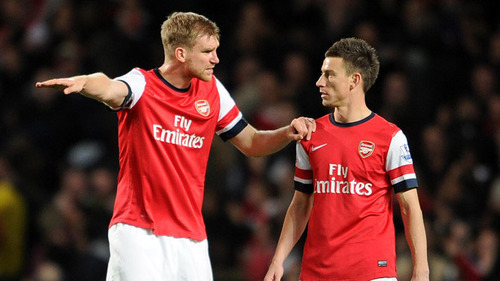
Wenger also seems to think Per Mertesacker and Laurent Koscielny is an impregnable, undroppable partnership, too. They both however, featured in Arsenal’s away drubbings to the top four last season: 6-3 loss at Manchester City, 6-0 loss at Chelsea and a 5-1 loss at Liverpool.
Long-serving Wenger has undoubtedly elevated the club far beyond anyone’s expectations since he first arrived back in 1996. He’s given the club state of the art facilities, a world-renowned, aesthetically pleasing brand of football and he’s managed all of this whilst making sure the club is debt free and self-sufficient, enabling them to thrive in the new Financial Fair Play era.
But they’re not thriving. Wenger has done tremendous to get the club to this position, but now either doesn’t know how to capitalise, or has forgotten.
The great Arsenal sides mentioned earlier boasted formidable spines. Sol Campbell and Kolo Toure were the predominant ‘Invincibles’ defensive pairing, and they had Gilberto Silva and the imperious Patrick Vieira in front of them. Thierry Henry was a huge, palpable presence at the point of Arsenal’s attack and most of all, he was a winner – a champion.
Even 1998’s double winning side had Tony Adams, Martin Keown, Emmanuel Petit, Vieira, Dennis Bergkamp and Ian Wright. All leaders, players who stood up and were counted.
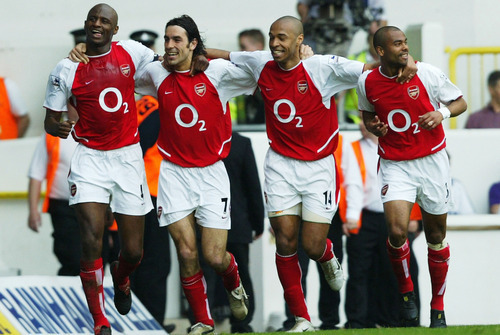
I don’t need to waste time drawing comparisons on today’s squad to accentuate this point.
The players in the Premier League you associate in that class are the likes of Vincent Kompany, Yaya Toure, John Terry and Gary Cahill, someone Wenger could have easily had if he would have shelled out the £7m Bolton asked for. He hesitated, Chelsea did not.
The time has come for a new man to come in and look at this club objectively without sentiment and board room motivations. Wenger cannot detach himself from what he has built and remains stubborn in his vision, no matter how far his rivals go to disprove it.
Jurgen Klopp or Diego Simeone strike me as the most tangible and realistic targets to succeed Wenger. Both are champions (ignore Dortmund’s form this year) and have excellent track records in the transfer market. The worst thing Arsenal could do is try and smooth over a transition in the same vein that Manchester United did with David Moyes – the club shouldn’t want to continue their recent trend.
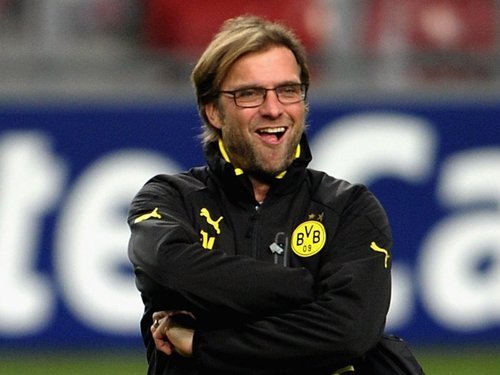
But retaining the clubs identity and ethos is relatively easy when it appertains to success. Wenger may see ultimate sacrilege in compromising the former, but the fans, the highest paying fans in all of Europe, only care in the latter.



